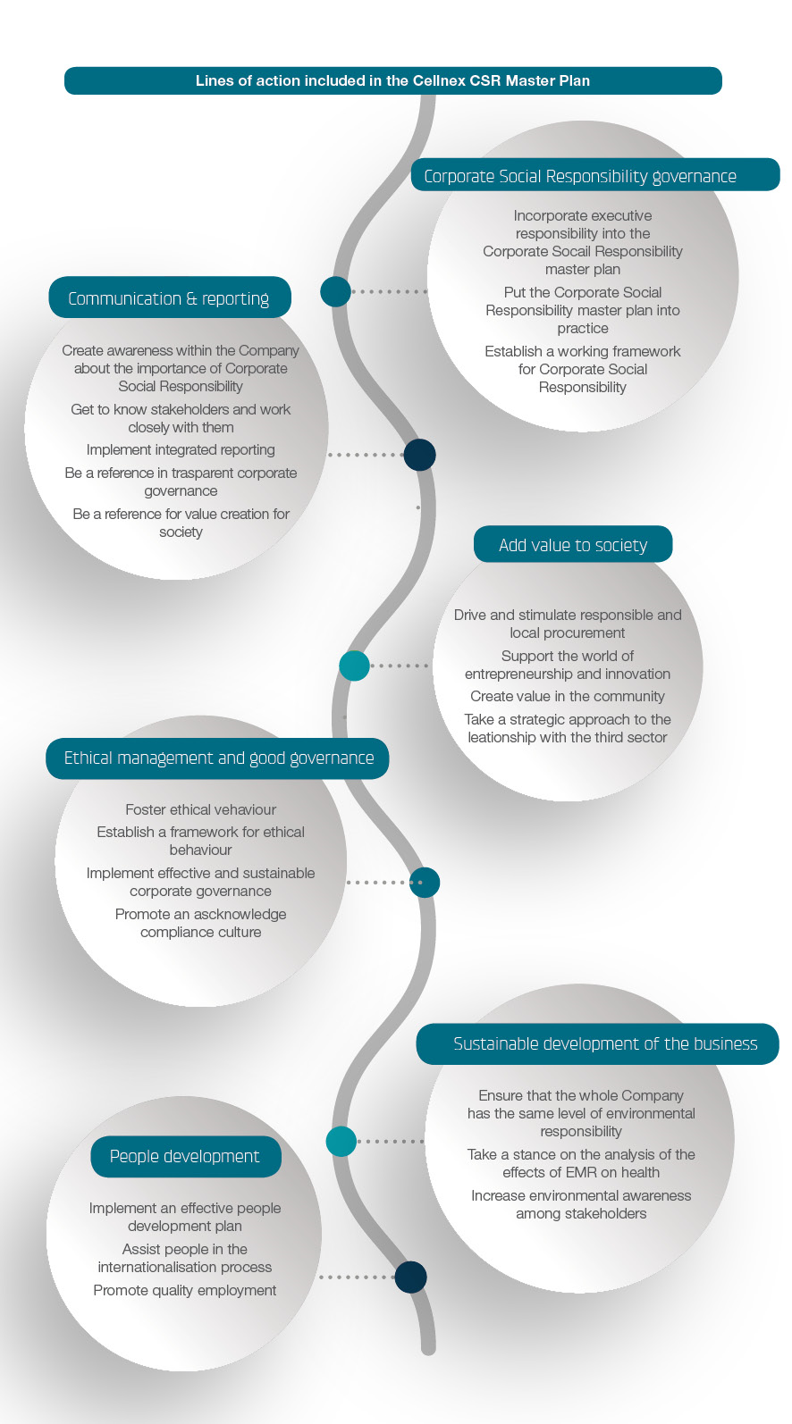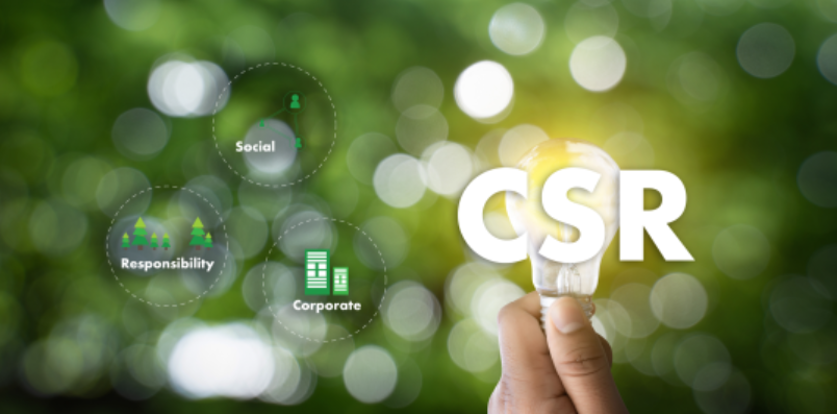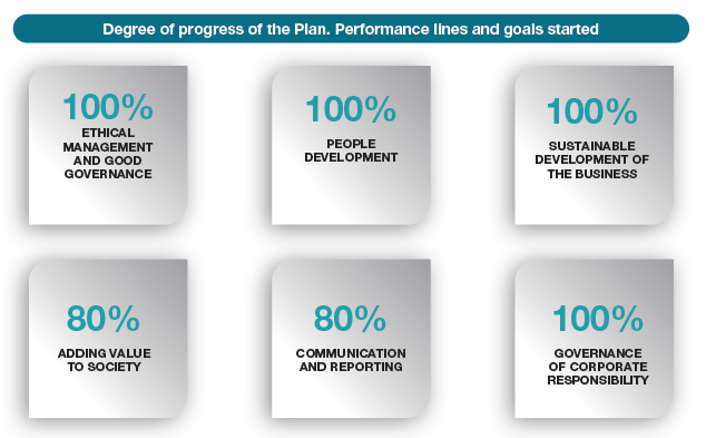Consolidated Management Report
Consolidated Financial Statements
Cellnex's Corporate Social Responsibility framework
Cellnex's key objective is to generate sustained value in the short, medium and long term, through responsible management of the business, incorporating the interests and expectations of the company’s stakeholders.
Cellnex has a Corporate Social Responsibility (CSR) policy that the Board of Directors approved in 2016 which sets out Cellnex's CSR strategy and commitment to best practices in the countries in which it operates, on the basis of international reference standards. In 2019 was updated CSR policy to introduce SA8000 standard.
This commitment is set forth in the company's 2016-2020 CSR Master Plan, which constitutes the reference framework and the tool for systematising the strategic objectives, monitoring indicators and the actions and programmes under way for each of the axes of the Plan.
New CSR Master Plan
In 2020, CSR Master Plan 2016-2020 will be revised to evaluate lessons learned and best practices, which will help us to consolidate the actions implemented and identify improvement actions for the next plan.
Taking into account feedback from the previous plan and current CSR demands, the new CSR Master Plan will be developed in 2020 This will represent a unique chance to update Cellnex CSR strategy, taking into account changes in our business perimeter as well as the internationalisation process.
LINES OF ACTION INCLUDED IN THE CELLNEX CSR MASTER PLAN

With the 2016-2020 CSR Plan, Cellnex aims to create an instrument bringing together all the company's ethical, environmental and social initiatives. Furthermore, it sets out a long-term vision, establishing commitments in accordance with internationally recognised standards that place it on the same level as the major infrastructure companies operating in Europe, specifically in the telecommunications sector. This plan also aims to improve two-way dialogue between Cellnex and all stakeholders, especially the company’s staff, customers, suppliers and contractors, administrations, shareholders, the community and partners in shared projects.
In 2017, Cellnex Telecom drafted a declaration on slavery and trafficking in human beings (currently available on its corporate website), in response to the United Kingdom Modern Slavery Law, which condemns any practice of labour exploitation and pledges to prevent it both in its activity and its supply chain. This commitment is developed through the Group's Corporate Responsibility Policy, which sets basic guidelines and lines of action in this area. The declaration on slavery and trafficking in human beings is updated annually. Likewise, Cellnex's Code of Ethics expresses its commitment to complying with human rights and expresses its total rejection of child labour and forced or compulsory labour and undertakes to respect freedom of association and collective bargaining.
During 2018, Cellnex has drawn up its Human Rights Policy applicable to the entire organisation which establishes that Cellnex is committed to protecting and respecting the Human Rights. In the supply chain, Cellnex evaluates its most critical suppliers in terms of human rights on an annual basis. Furthermore, in 2017, Cellnex drafted a Purchasing Policy under which its suppliers undertake to protect and respect human rights and to be familiar with the Code of Ethics and circulate it among their employees and subcontractors.
In 2019, the company carried out an internal audit as part of the process to obtain SA8000 certification.
The company is committed to the application of best practices in the countries in which it operates and based on international reference standards. For this reason, CSR criteria have been introduced in Due Diligence. In this way, Cellnex requires knowledge of the CSR policies and practices of the companies with which it works or will work.
In addition, the company's senior managers are committed to the corporate social responsibility through specific ESG-related objectives. Specifically, this year an objective was set for this group which consists of evaluating and monitoring the efforts made by the Group in the area of ESG (Environment, Social and Governance), based on a combination of the general score obtained in a selection of ESG indexes in which Cellnex Telecom participates

CSR Master Plan 2016-2020 and degree of progress
In 2019 great efforts were made to implement the various goals and actions included in the Master Plan. The degree of implementation of these is shown below:
CSR 2016-2020 MASTER PLAN
Action Areas |
No. Action lines |
No. Lines under development |
No. of actions |
Attainment of the different actions |
Ethical management and good governance |
5 |
100% |
21 |
90% |
People development |
6 |
100% |
9 |
89% |
Sustainable development of the business |
9 |
100% |
17 |
71% |
Adding value to society |
5 |
80% |
9 |
89% |
Communication and reporting |
10 |
80% |
13 |
85% |
Governance of Corporate Responsibility |
3 |
100% |
13 |
92% |
TOTAL |
38 |
93% |
82 |
86% |

MAIN ACTIONS IMPLEMENTED IN 2019 / KEY FUTURE ACTIONS TO BE IMPLEMENTED IN 2020
Main actions implemented in 2019 |
Key future actions to be implemented in 2020 |
Ethical management and good governance |
|
Creation of an ethical channel on the web, more participatory and for all stakeholders |
|
People development |
|
Continue to measure staff satisfaction through work climate surveys. |
Annalise the possibility of consolidating the work-life balance programme through the certification of Cellnex as a Family-Responsible Company (EFR). |
Sustainable development of the business |
|
Incorporate environmental criteria in Due Diligence processes prior to a merger, acquisition or joint venture operation. |
To implement a Plan for the protection of the environment and biodiversity for application in the natural spaces in which Cellnex operates. |
|
Design an environmental course adapted to professional categories and functional areas. |
Adding value to society |
|
Attend dialogue tables with CR experts. |
|
Carry out actions to economically involve employees in the company's social action and encourage their participation. |
|
Continue corporate volunteering and define a volunteering approach and program that encourages and facilitates employee participation in initiatives. |
|
To conduct a study on the convenience of having a Cellnex foundation that articulates social action and the sponsorships and donations carried out by the Company. |
|
Communication and reporting |
|
To make CR and the creation of shared value the core of senior management discourse, defining the key messages related to impact management that must be transferred to the corporate level. |
To design the necessary methodology to identify the concerns of the different interest groups. Detect relevant actions for the different interest groups and assume commitments with them. |
Publish a periodic internal report based on the financial indicators reported by the areas. |
|
CSR governance |
|
Define common Corporate Responsibility requirements for all companies in the group. |
|

